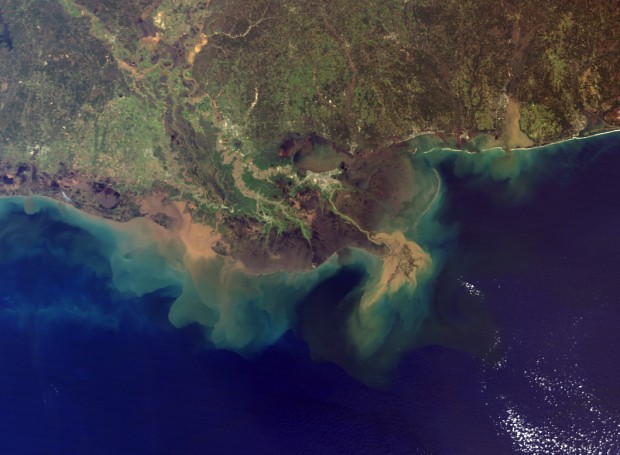Letting the Delta Die to Save It
categories: Cocktail Hour
2 comments

IDL TIFF file
By Guest Poster Jimmy Guignard (Cartoon head coming…)
When Katrina hit the coast in 2005, I was in Pennsylvania packing up to head to North Carolina for a short visit before the semester got away from me. The phone rang. My brother, Billy, said, “Hey, man, you don’t want to come down here. We’ve got no gas.” Holy shit, I remember thinking. I had been following Katrina a little—I hadn’t lived on a coast in years, so I no longer tracked storms for their surfing potential. But my brother’s warning pushed me to read obsessively about the hurricane’s impact. Horrifying.
This is the 10 year anniversary of Katrina, and not surprisingly, the storm and its aftermath have been prominent in the news. President Obama made a trip to New Orleans to say that we’ve made progress though we have work to do and Michael “Heckuva Job, Brownie” Brown explained why nothing was his fault.
In 2012, I read Dave’s Tarball Chronicles and began to understand the nature of the Delta. Now, though I write about fracking in Pennsylvania (another kind of disaster), I keep an eye on the Gulf. One theme I encounter often: rehabilitate the delta. Writing in Scientific American, Mark Fishetti reports that teams are creating plans to do just that—by letting the southernmost part of it die.
Fischetti tells the story of the Changing Course Design Competition, a competition that asks teams of experts to imagine ways to make the delta more sustainable and let it do its work of protecting the coast. According to Fischetti (and nearly everyone else, it seems), the biggest problem with the Delta is that it’s not being allowed to replenish itself, which means it’s losing its storm-absorbing properties. Put another way, the levees that control the floods starve the marshes of the much-needed sediment and nutrients carried there by freshwater.
Fischetti’s article is worth a read. So is this companion piece of sorts by Politico’s Michael Grunwald about the Army Corps of Engineers’ contribution to the mess. What grabs me most—and something I see here in the frack zone—is the way what I’d call Big Idea Planning trumps local knowledge. I want to see more small idea planning, planning that includes curves, nutrients and sediment, the mixing of salt and fresh water, the gradual accumulation of local knowledge. Changing Course says it all, right?


Check out “By The Rivers Of Babylon,” a recent documentary about the accelerating loss of delta land — and dance halls — from the constructions of levees.
I will. Thanks.